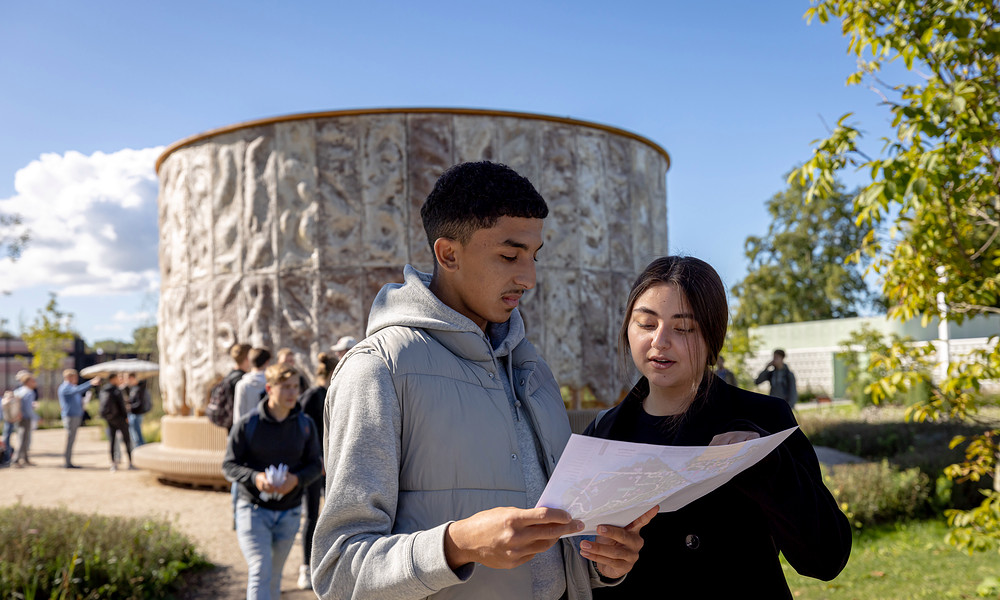Boost the area

Urban Regeneration
- Level
- Language
- English
- Credits
- 30 ECTS
- Startmonths
- Start: February
- Locations
- Groningen
You probably know places in your town or city needing a boost or dramatic improvements! This could take the form of physical, economic or social intervention. Closely examining the area and surveying the users will enable you to gain first-hand insight into their current concerns and where change is needed to boost the area. This adjustment, taking into account any trends and developments, will ensure a future-proof design and/or organisation of the area. The ultimate goal is to train students in the techniques required for the successful participation in adaptive urban regeneration.
About this minor
On completion of this minor, students will be able to answer the following question:
How can we adaptively design and organize the built environment to stimulate integrated regeneration in ways that engage all stakeholders in the local and regional processes of current and future change?
The students will be analysing an area as a group, e.g. identifying the trends at play in the area, what the needs of the users are, how the area and its direct environment are built up and what opportunities the area offers. The solution to the issue regarding the area will be examined as part of the design process and translated into a plan or design in close consultation with the users of the area and with the future in mind.
The Urban Regeneration minor allows students to think in an innovative way, to conduct research while designing a solution, to work with members of various disciplines and cultures, to gain insight into and experience with the way people and places interact and to design a future-proof adaptive environment for people to use.
The minor is suitable for students majoring in different subjects and who have different backgrounds. This minor is particularly suited to students with an affinity for research and design and with a desire to help reinvigorate specific neighbourhoods by way of socio-physical interventions and contribute to creating a future-proof built environment.
Subjects
For more information about the subjects check the ECTS Course Catalogue.
Educational approach
In this minor, students will be working on a specific area in groups. Each student will contribute their own knowledge, skills, and background, which will allow students and lecturers to learn from one another. The issues will be investigated through design-based research, with expert lectures providing the necessary support, occasionally on a Just-in-Time basis. In addition, the minor provides students with the space to arrive at and create innovative solutions.
Study Programme
This minor is part of the Hanze UAS Groningen (Dutch-taught) Built Environment bachelor's programme.
Before you can start
Available to
- students following the Built Environment programme at Hanze University of Applied Sciences (minor enrolment via Osiris);
- other students at Hanze University of Applied Sciences (minor enrolment via Osiris);
- students from other institutions in the Netherlands
- students from institutions abroad. For more information visit hanze.nl/io. The application deadline for the winter semester is 15 May.
Admission & application
Please check with your home university whether there is an agreement set up with the Hanze School that is offering the exchange programme of your choice. To apply for and be admitted for our exchange programme you should take the following steps
-
1. Be nominated by your home university
Once you have been nominated, your nomination will be checked by us and confirmed to your home university by email. You will receive your application link during our application period.
-
2. Submit your online application
Once you have been nominated by your home university you will receive a personal application link and the application instructions during our application period. The application is fully digital and documents do not have to be send by email or postal mail. Make sure you do not miss our application deadline!
-
3. Letter of Acceptance
Once you have submitted your application we will check your documents. If you have to re-submit any documents, we will let you know. We will be sending out Acceptance Letters from the beginning of May when you start in September and from the middle of October when you start in February.
Find out more about our application process and practical matters.



